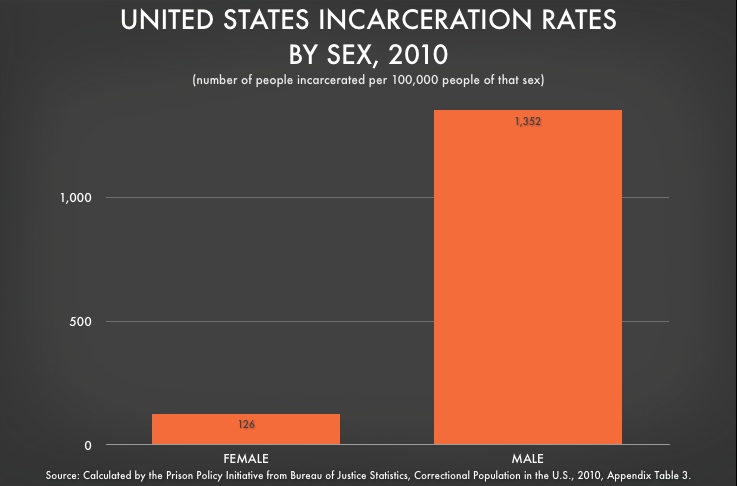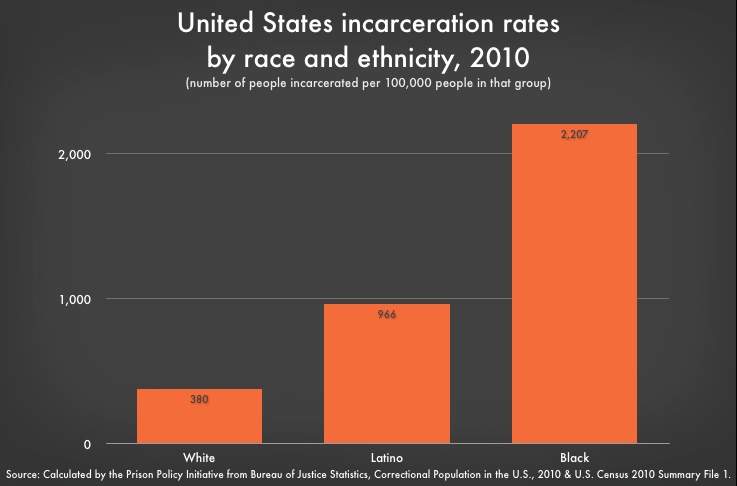Is There Systemic Gender Discrimination in US Prisons?
 The populations of men and women are almost equal in countries across the globe. In 2010, for example, the US had 157,244,385 women and 153,139,563 men. OK, there were a few more women than men.
The populations of men and women are almost equal in countries across the globe. In 2010, for example, the US had 157,244,385 women and 153,139,563 men. OK, there were a few more women than men.
But the “United States Incarceration Rates by Sex, 2010” shows a staggering imbalance for every 100,000 people: 126 for women, 1,352 for men. Should we feel outraged by this blatant gender discrimination? Not so, says Peter Wagner, Executive Director of the Prison Policy Initiative, because “Incarceration is not an equal opportunity punishment.”
To explain this away is to summon all the time-worn stereotypes about men and women, starting with one sex being made of “rats and snails and puppy dog tails,” the other of “sugar and spice and everything nice.” You already know all the others.
Or can we say that these “normal” differences have all been hardwired into the human species? Perhaps there are some stats showing the gender breakdown of combat veterans who have died in defense of their country over the years.
Few people would argue that the unequal distribution of men and women in prison populations is evidence of systemic gender discrimination. But it’s become commonplace to do so when it comes to race and ethnicity (see graph below). Of course, you’ll never hear the look-alike reasons that explain away gender-based differences.
We mention all of this because our 2016 presidential campaign and prime minister race in Britain have seen a resurgence of many of the old feminist stereotypes about the strengths of women in politics. And on the nightly news, recent shootings stand as positive proof of an ugly racist strain in American law enforcement.
The president’s well-meaning Facebook post seems to prematurely assign blame in advance of any official investigations or court trials: “what’s clear is that these fatal shootings are not isolated incidents. They are symptomatic of the broader challenges within our criminal justice system, the racial disparities that appear across the system year after year, and the resulting lack of trust that exists between law enforcement and too many of the communities they serve.”
Given this high-level indictment, could there be a causal link to the assassinations of the five officers in Dallas that immediately followed? Or perhaps former prosecutor-mayor Rudy Giuliani is on to something when he implies that race and gender cards themselves are at fault: “When you say black lives matter, that’s inherently racist. Black lives matter. White lives matter. Asian lives matter. Hispanic lives matter. That’s anti-American, and it’s racist.”

 The populations of men and women are almost equal in countries across the globe. In 2010, for example, the US had 157,244,385 women and 153,139,563 men. OK, there were a few more women than men.
The populations of men and women are almost equal in countries across the globe. In 2010, for example, the US had 157,244,385 women and 153,139,563 men. OK, there were a few more women than men.